Process Flow Details
Rotary kiln can be divided into cement kiln, metallurgical chemical kiln and lime kiln according to different materials. Cement kilns are mainly used for calcining cement clinker, and are divided into two categories: dry production cement kilns and wet production cement kilns. Metallurgical chemical kilns are mainly used for magnetization roasting of lean iron ore in iron and steel plants in the metallurgical industry; oxidative roasting of chromium and nickel iron ore; roasting high alumina vanadium ore in refractory plants and clinker and aluminum hydroxide in aluminum plants; roasting chromium ore in chemical plants and chrome ore powder and other minerals. Lime kiln (i.e. active lime kiln) is used for roasting active lime and light-fired dolomite for iron and steel plants and ferroalloy plants.
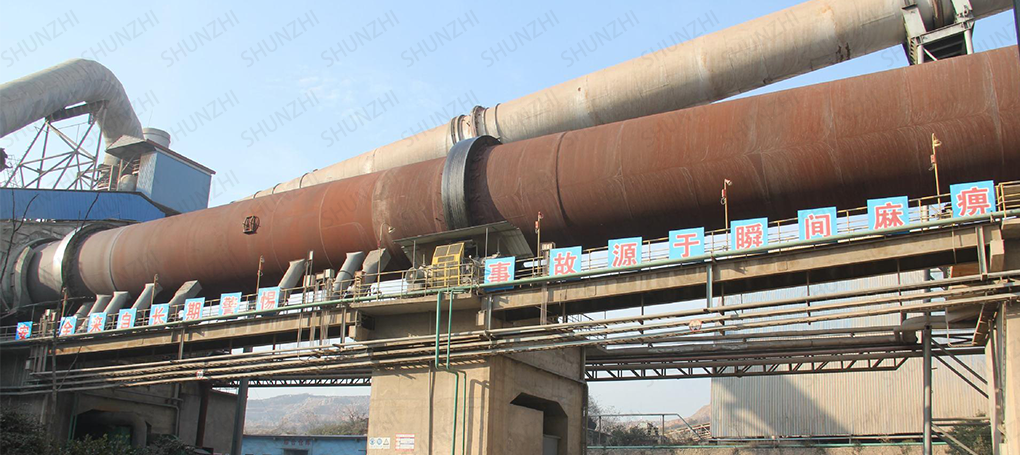
Classification of rotary kiln: according to the appearance, it can be divided into variable diameter rotary kiln and full diameter rotary kiln. According to the use, it can be divided into cement rotary kiln, ceramsite sand rotary kiln, kaolin rotary kiln, lime rotary kiln, etc. According to the energy supply effect Differently divided into gas-fired rotary kiln, coal-fired rotary kiln, and mixed-fuel rotary kiln.
(1) Variable diameter rotary kiln
Rotary kilns with varying diameters front and rear. Generally, the diameter changes before and after about 30cm. Compared with the traditional diameter rotary kiln, it has the advantages of energy saving and high yield, but the processing of the variable diameter rotary kiln is more difficult, which is more difficult to process than the traditional diameter rotary kiln. Stricter requirements for equipment.
(2) diameter rotary kiln
It is a rotary kiln with the same diameter in the front and the rear. Our common type of rotary kiln was invented by Dietz Germany in 1883. After years of evolution the rotary kiln has become a general purpose equipment. It has better effect and higher output than traditional shaft kiln. Simple processing, but more energy-intensive than variable diameter rotary kilns
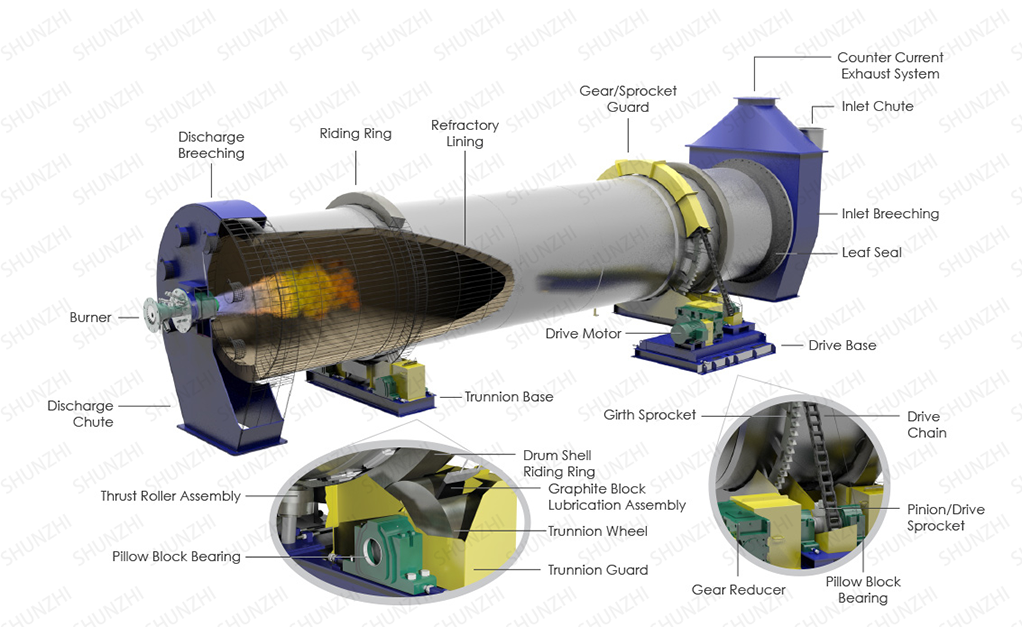
The main structure
Kiln head part
The kiln head is the discharge part of the rotary-bed kiln, with a diameter larger than that of the rotary-bed kiln. It is sealed by the stainless steel fish scales and the kiln body.
Kiln body part
It is the main body of the rotary kiln (rotary kiln), usually 30~150 meters long, cylindrical, with 3~5 rolling rings in the middle. Most of the cylinders are processed by factories into 3~10 sections, which are transported by large trucks to the destination and welded. The rolling ring part, also commonly known as (the tire ring), is cast from molten steel, and the rolling ring part of the kiln body is slightly thicker than other parts of the kiln body due to its load-bearing. The supporting tug is also a part of the kiln body and the rolling ring is connected to the foundation correspondingly, and is the load-bearing pillar of the entire rotary kiln. Usually a set of idlers consists of two idlers and two stop wheels. The rotary bed kiln should be covered with refractory bricks during normal operation.
Kiln tail part
The tail part of the kiln is also an important part of the rotary bed kiln. The shape of the feed end is similar to the cover of a rotary bed kiln, which is mainly responsible for feeding and sealing.
Rotary bed kiln support frame
1. The support frame of the rotary kiln can make our rotary kiln equipment more solid, so that it will not shake when working and stabilize production;
2. The support frame of the rotary bed kiln is mainly to fix our rotary bed kiln equipment, which can prevent the deformation of our rotary bed kiln equipment when it is used. Everyone knows that the rotary bed kiln equipment will be out of shape if it is not operated properly, so its have this effect;
3. The rotary bed kiln support can facilitate the hoisting of our rotary bed kiln equipment, etc., and is convenient for transportation.
Preheat tower
Also called preheater, it is a device that preliminarily heats the material by the waste heat of the exhaust gas discharged from the rotary bed kiln before the material enters the rotary bed kiln, and it is mostly vertical structure. The principle is to pass the waste heat discharged from the kiln tail of the rotary bed kiln through a preheating tower filled with raw materials to realize the heating process of raw materials. In addition, the preheating tower can effectively reduce energy consumption and improve the quality of finished products.
Cooler
On the contrary, the cooler and the preheater are devices that rapidly cool down the material of the rotary bed kiln after firing. It looks like a small rotary bed kiln, but the diameter is smaller and shorter, and there is no need to lay refractory bricks, and the inside is replaced by a lifting plate. The main function is to rapidly cool the finished product.
conveyor
The conveyor belt is the material conveying device of the rotary kiln. During its use, various forms of damage often occur, such as: edge delamination, festering, defects and cracks; long-distance longitudinal tearing, deep scratches, holes, large areas Abrasion, covered drum packs or peeling, internal defects in joints, etc. Among them, the longitudinal tear is the most urgent, the edge damage is the most common, the inherent defects of the joint are unavoidable, and the service life after repair is the most important concern.

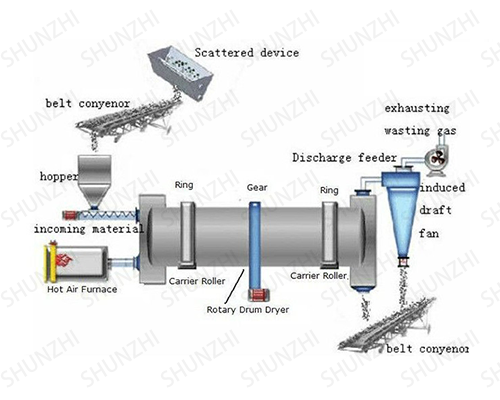
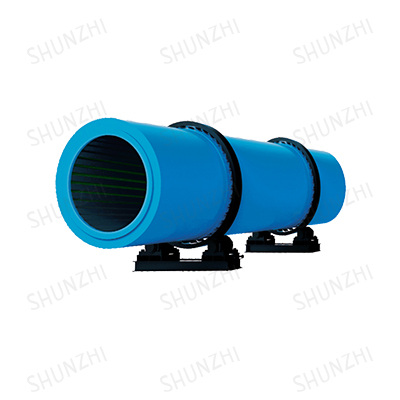
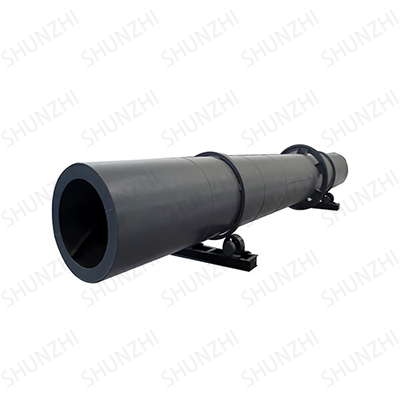
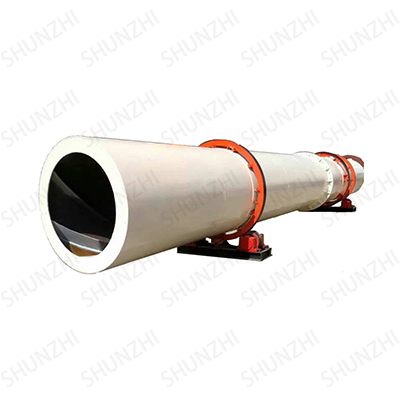
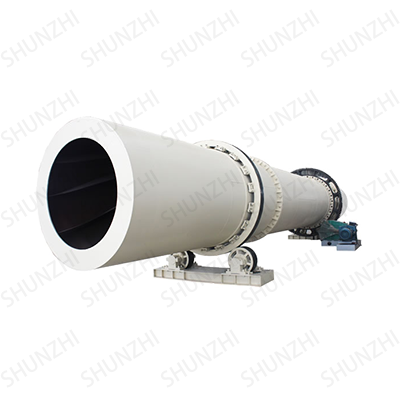
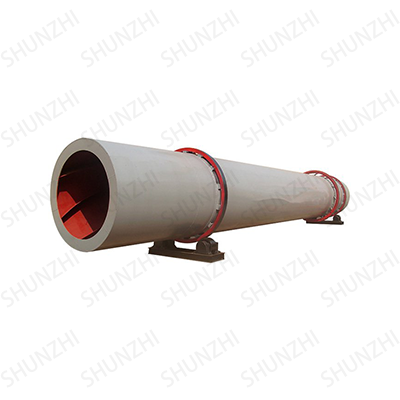
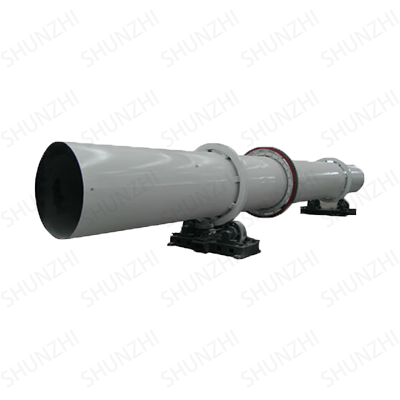
 TOP
TOP  Email
Email Phone
Phone Online
Online